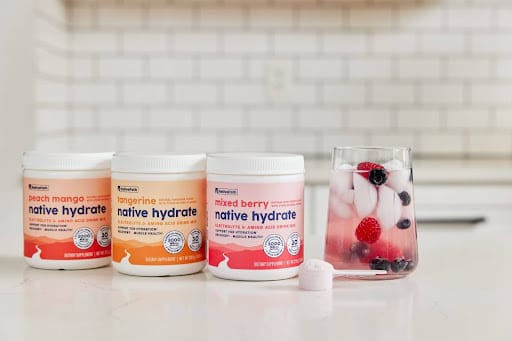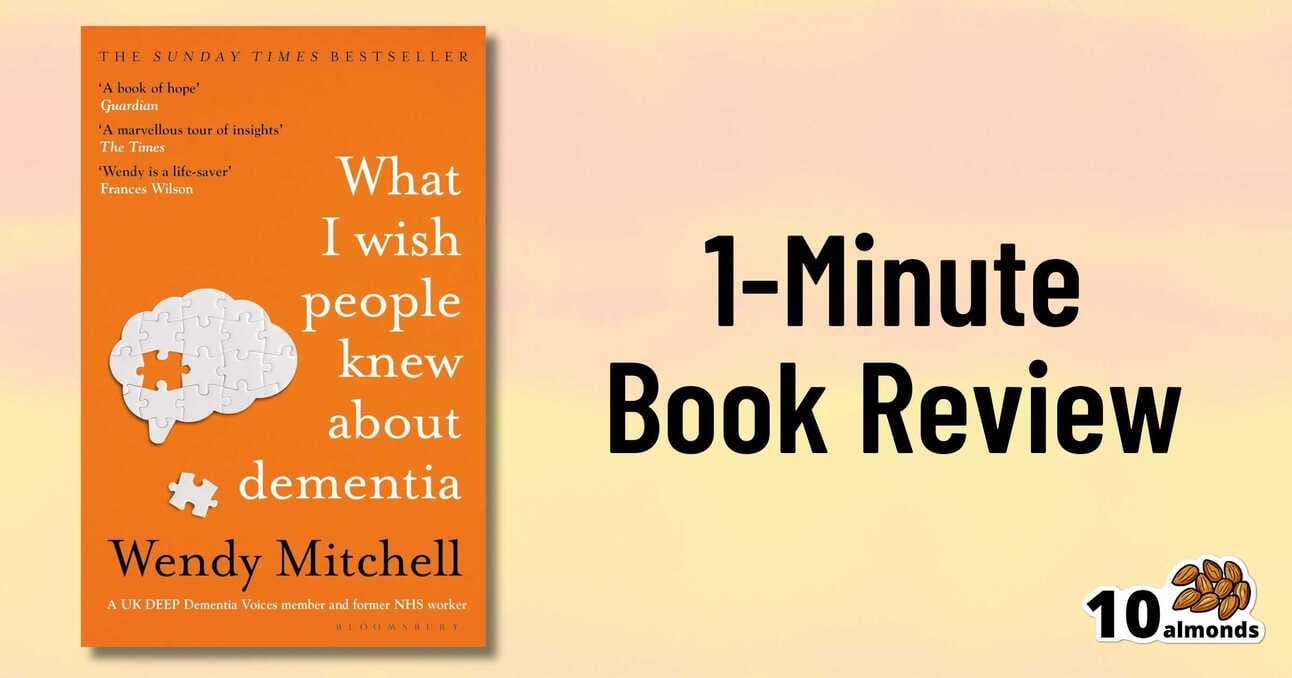Fun fact: passing urine in the blood is one of the oldest diseases recorded in writing; the Ancient Egyptian name for it was “Aaaaa”!
It can alternatively be transcribed as “Āaā”, by the way; those “ā” sounds are a “long a”—also written “aa”.
In A Rush?
Today’s 30-Second Summary
If you don’t have time to read the whole email today, here are some key takeaways:
GLP-1 receptor agonists, largely semaglutide drugs such as Ozempic, have risen to popularity in recent years for their weight loss effects
Today’s main feature looks beyond its side effects of gastrointestinal problems, and past its downside of “if you stop taking it, the weight comes promptly back”, and examines its effect on dietary intake—especially when it comes to protein.
How’s your hydration looking? For most people, at any given time, it’s not great. But it doesn’t have to be that way!
Today's sponsor NativePath is offering a 365-day money-back guarantee on their range of electrolyte and amino acid drink mixes, which are great for your kidneys, bladder, and pelvic floor muscles.
Today’s featured recipe is for a freekeh tomato feast; fiber-dense and loaded with probiotics, it’s great for your heart and gut, as well as being very tasty and filling!
Read on to learn more about these things, or click here to visit our archive
A Word To The Wise
This Year: Hottest Summer In Millennia (Again)
How extreme heat can affect you—and how you can protect yourself:
Watch and Learn
Why Fibromyalgia Is Not An Acceptable Diagnosis
…and what to look for instead:
Prefer text? The above video will take you to a 10almonds page with a text-overview, as well as the video!
Wildcard Wednesday
Semaglutide's Surprisingly Big Research Gap
GLP-1 receptor agonists like Ozempic, Wegovy, and other semaglutide drugs. are fast becoming a health industry standard go-to tool in the weight loss toolbox. When it comes to recommending that patients lose weight, “Have you considered Ozempic?” is the common refrain.
Sometimes, this may be a mere case of kicking the can down the road with regard to some other treatment that it can be argued (sometimes even truthfully) would go better after some weight loss:
…which we also covered in fewer words in the second-to-last item here:
But GLP-1 agonists work, right?
Yes, albeit there’s a litany of caveats, top of which are usually:
there are often adverse gastrointestinal side effects
if you stop taking them, weight regain generally ensues promptly
For more details on these and more, see:
…but now there’s another thing that’s come to light:
The dark side of semaglutide’s weight loss
In academia, “dark” is often used to describe “stuff we don’t have much (or in some cases, any) direct empirical evidence of, but for reasons of surrounding things, we know it’s there”.
Well-known examples include “dark matter” in physics and the Dark Ages in (European) history.
In the case of semaglutide and weight loss, a review by a team of researchers (Drs. Sandra Christenen, Katie Robinson, Sara Thomas, and Dominique Williams) has discovered how little research has been done into a certain aspect of GLP-1 agonist’s weight loss effects, namely…
Dietary changes!
There’s been a lot of popular talk about “people taking semaglutide eat less”, but it’s mostly anecdotal and/or presumed based on parts of the mechanism of action (increasing insulin production, reducing glucagon secretions, modulating dietary cravings).
Where studies have looked at dietary changes, it’s almost exclusively been a matter of looking at caloric intake (which has been found to be a 16–39% reduction), and observations-in-passing that patients reported reduction in cravings for fatty and sweet foods.
This reduction in caloric intake, by the way, is not significantly different to the reduction brought about by counselling alone (head-to-head studies have been done; these are also discussed in the research review).
However! It gets worse. Very few studies of good quality have been done, even fewer (two studies) actually had a registered dietitian nutritionist on the team, and only one of them used the “gold standard” of nutritional research, the 24-hour dietary recall test. Which, in case you’re curious, you can read about what that is here:
Of the four studies that actually looked at the macros (unlike most studies), they found that on average, protein intake decreased by 17.1%. Which is a big deal!
It’s an especially big deal, because while protein’s obviously important for everyone, it’s especially important for anyone trying to lose weight, because muscle mass is a major factor in metabolic base rate—which in turn is much important for fat loss/maintenance than exercise, when it comes to how many calories we burn by simply existing.
A reasonable hypothesis, therefore, is that one of the numerous reasons people who quit GLP-1 agonists immediately put fat back on, is because they probably lost muscle mass in amongst their weight loss, meaning that their metabolic base rate will have decreased, meaning that they end up more disposed to put on fat than before.
And, that’s just a hypothesis and it’s a hypothesis based on very few studies, so it’s not something to necessarily take as any kind of definitive proof of anything, but it to say—as the researchers of this review do loudly say—more research needs to be done into this, because this has been a major gap in research so far!
Any other bad news?
While we’re talking research gaps, guess how many studies looked into micronutrient intake changes in people taking GLP-1 agonists?
If you guessed zero, you guessed correctly.
You can find the paper itself here:
What’s the main take-away here?
On a broad, scoping level: we need more research!
On a “what this means for individuals who want to lose weight” level: maybe we should be more wary of this still relatively new (less than 10 years old) “wonder drug”. And for most of those 10 years it’s only been for diabetics, with weight loss use really being in just the past few years (2021 onwards).
In other words: not necessarily any need to panic, but caution is probably not a bad idea, and natural weight loss methods remain very reasonable options for most people.
See also: How To Lose Weight (Healthily!)
Take care!
Our Sponsors Make This Publication Possible
Don't drink more... Drink smarter!
You've probably heard that the human body is about 60% water.
That was true... In our 20s, anyway. By the age of 50, the average is more like 51.5%, and that number continues to drop as we get older.
But it doesn't have to be that way.
NativePath is offering an optimized blend of electrolytes and amino acids, that has been shown to reduce UTIs by 58%, improve muscle strength by 36%, and yes, that includes strengthening the bladder!
In short: you don't have to drink more, if you drink smarter.
Best of all, there's a 365-day money-back guarantee, so there's no reason not to try it out and see if you like it:
Please do visit our sponsors—they help keep 10almonds free
This Or That?
Vote on Which is Healthier
Yesterday we asked you to choose between buckwheat vs bulgur wheat—we picked the buckwheat (click here to read about why), as did 51% of you!
Now for today’s choice:
Click on whichever you think is better for you!
Recipes Worth Sharing
Freekeh Tomato Feast
With fiber-dense flavorful freekeh and a variety of gut-healthy probiotics as well as generous amounts of lycopene and other phytonutrients, this dish is as healthy for your heart and gut as it is pleasing to the tastebuds:
Click below for our full recipe, and learn its secrets:
One-Minute Book Review
What I Wish People Knew About Dementia: From Someone Who Knows – by Dr. Wendy Mitchell
We hear a lot from doctors who work with dementia patients; sometimes we hear from carers too. In this case, the author spent 20 years working for the NHS, before being diagnosed with young-onset dementia, at the age of 58. Like many health industry workers who got a life-changing diagnosis, she quickly found it wasn’t fun being on the other side of things, and vowed to spend her time researching, and raising awareness about, dementia.
Many people assume that once a person has dementia, they’re basically “gone before they’re gone”, which can rapidly become a self-fulfilling prophecy as that person finds themself isolated and—though this word isn’t usually used—objectified. Talked over, viewed (and treated) more as a problem than a person. Cared for hopefully, but again, often more as a patient than a person. If doctors struggle to find the time for the human side of things with most patients most of the time, this is only accentuated when someone needs more time and patience than average.
Instead, Dr. Mitchell—an honorary doctorate, by the way, awarded for her research—writes about what it’s actually like to be a human with dementia. Everything from her senses, how she eats, the experience of eating in care homes, the process of boiling an egg… To relationships, how care changes them, to the challenges of living alone. And communication, confusion, criticism, the language used by professionals, or how things are misrepresented in popular media. She also talks about the shifting sense of self, and brings it all together with gritty optimism.
The style is deeply personal, yet lucid and clear. While dementia is most strongly associated with memory loss and communication problems, this hasn’t affected her ability to write well (7 years into her diagnosis, in case you were wondering).
Bottom line: if you’d like to read a first-person view of dementia, then this is an excellent opportunity to understand it from the view of, as the subtitle goes, someone who knows.
Penny For Your Thoughts?
What did you think of today's newsletter?
Wishing you a wonderful Wednesday full of wellness,
The 10almonds Team









